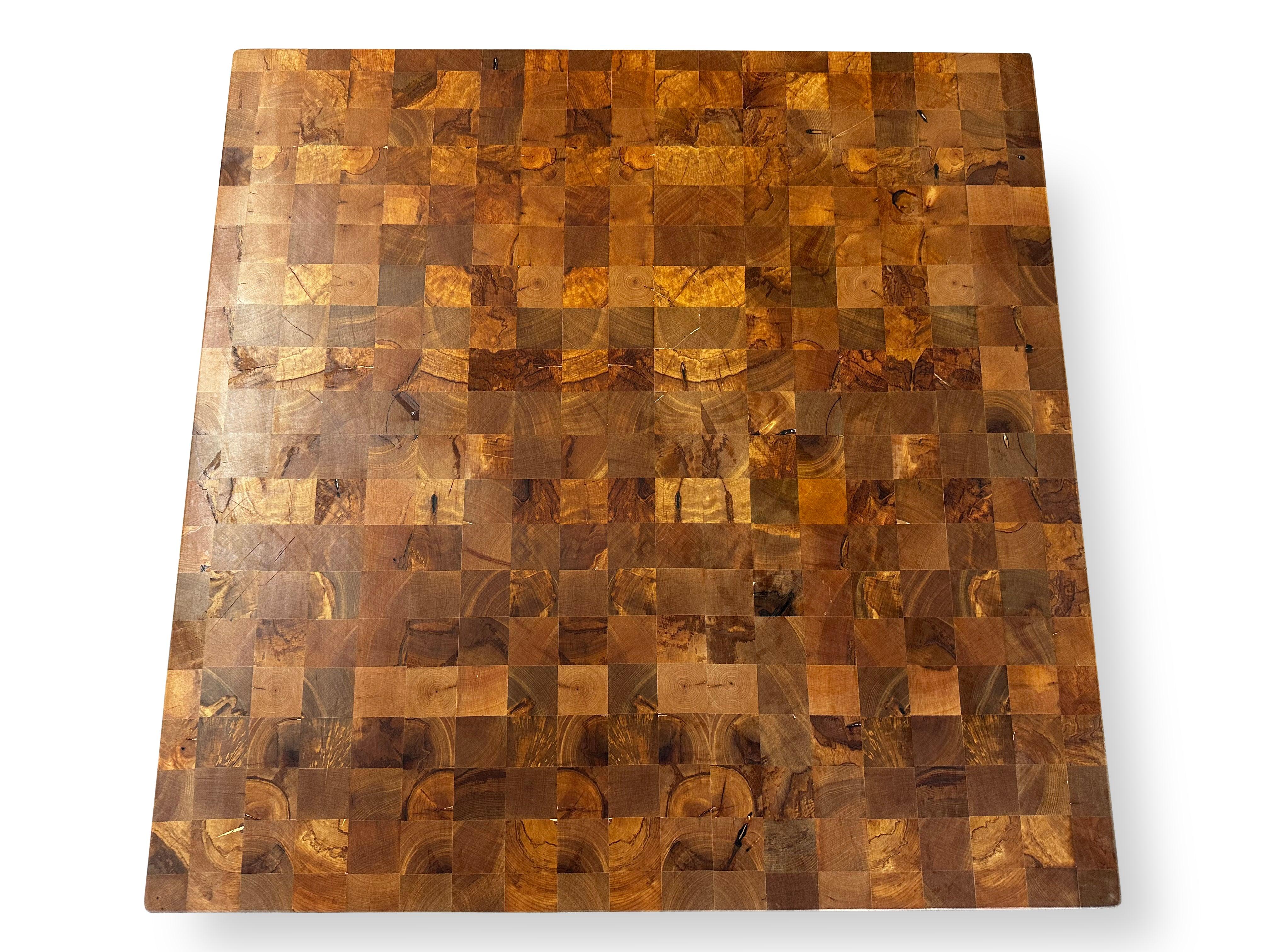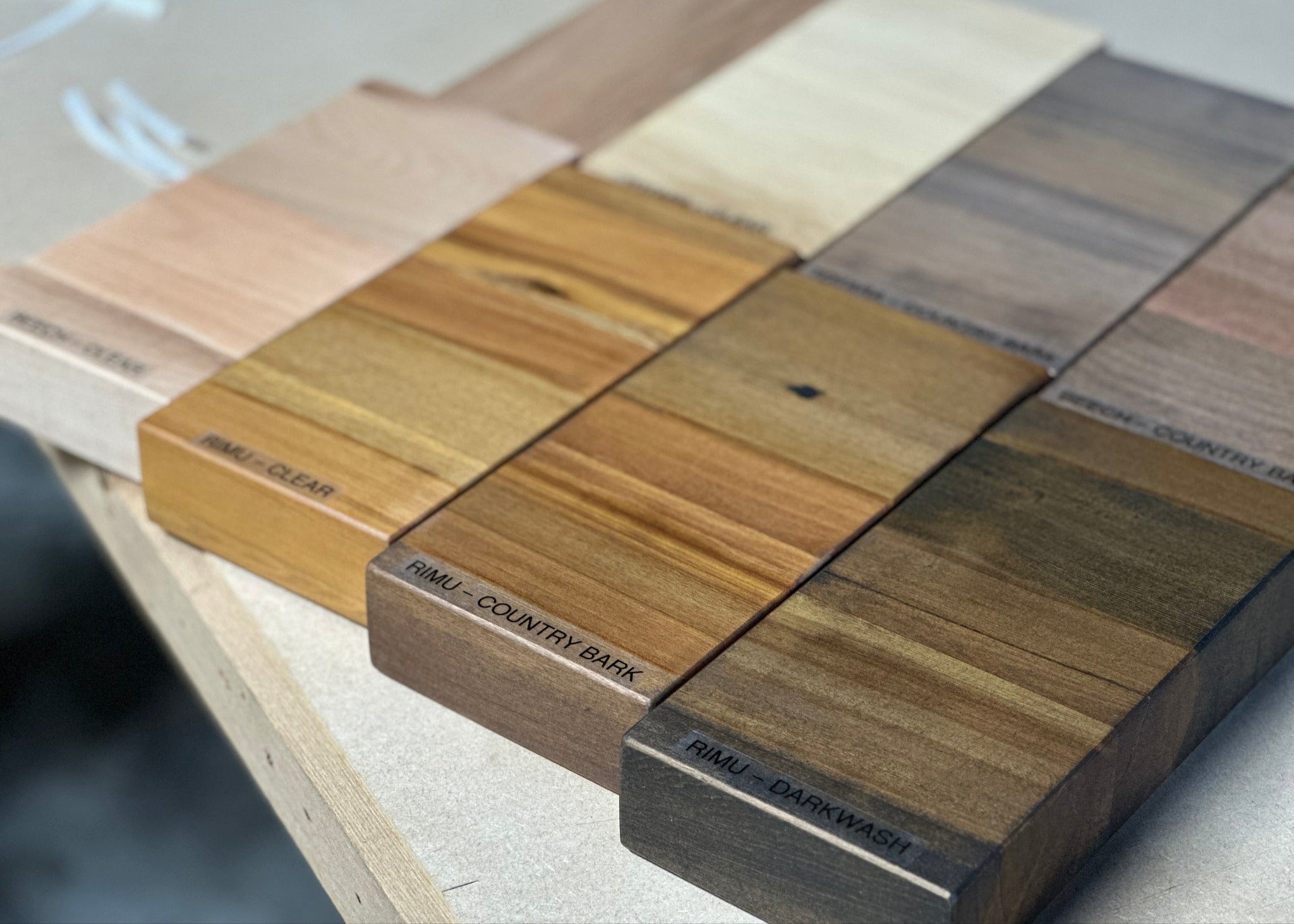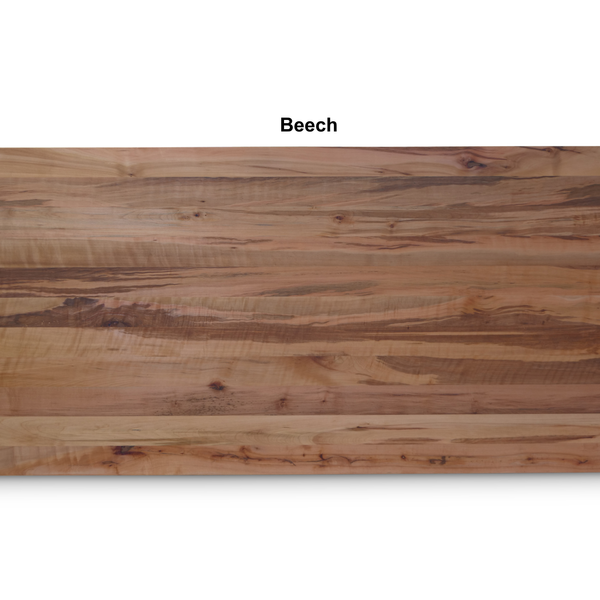Current turnaround for custom orders is 8 weeks. If you need something faster, just let us know.
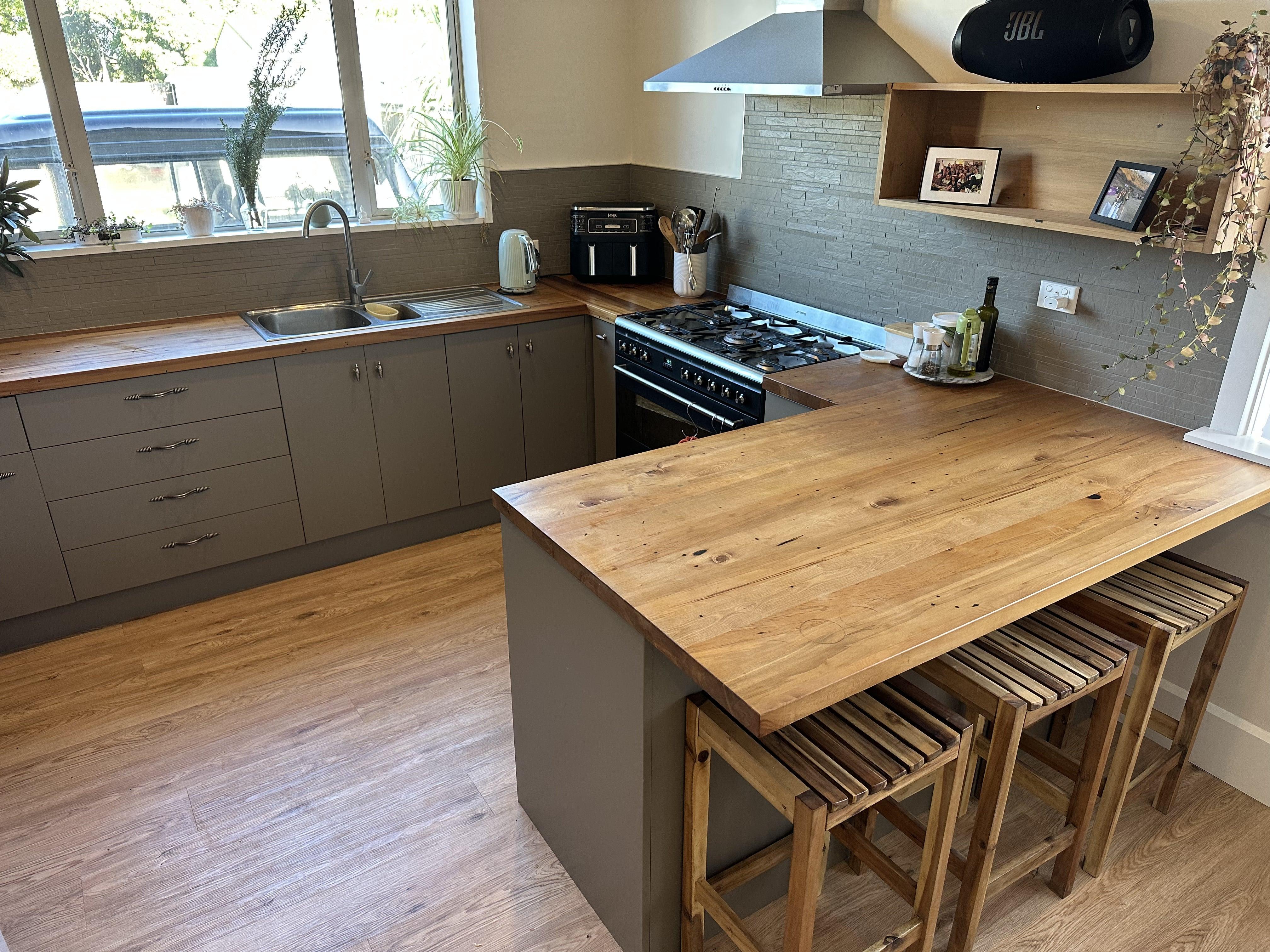
Custom Benchtops
Premium quality New Zealand timber benchtops with customizable dimensions, shapes and colours. Also great for floating shelves, nook desks, counters, and much more. Any shape and size including sink cut-outs. Delivery included.
Discount option: 10% for unsanded and uncoated (raw) benchtops.
Free delivery
Nationwide right to your door.
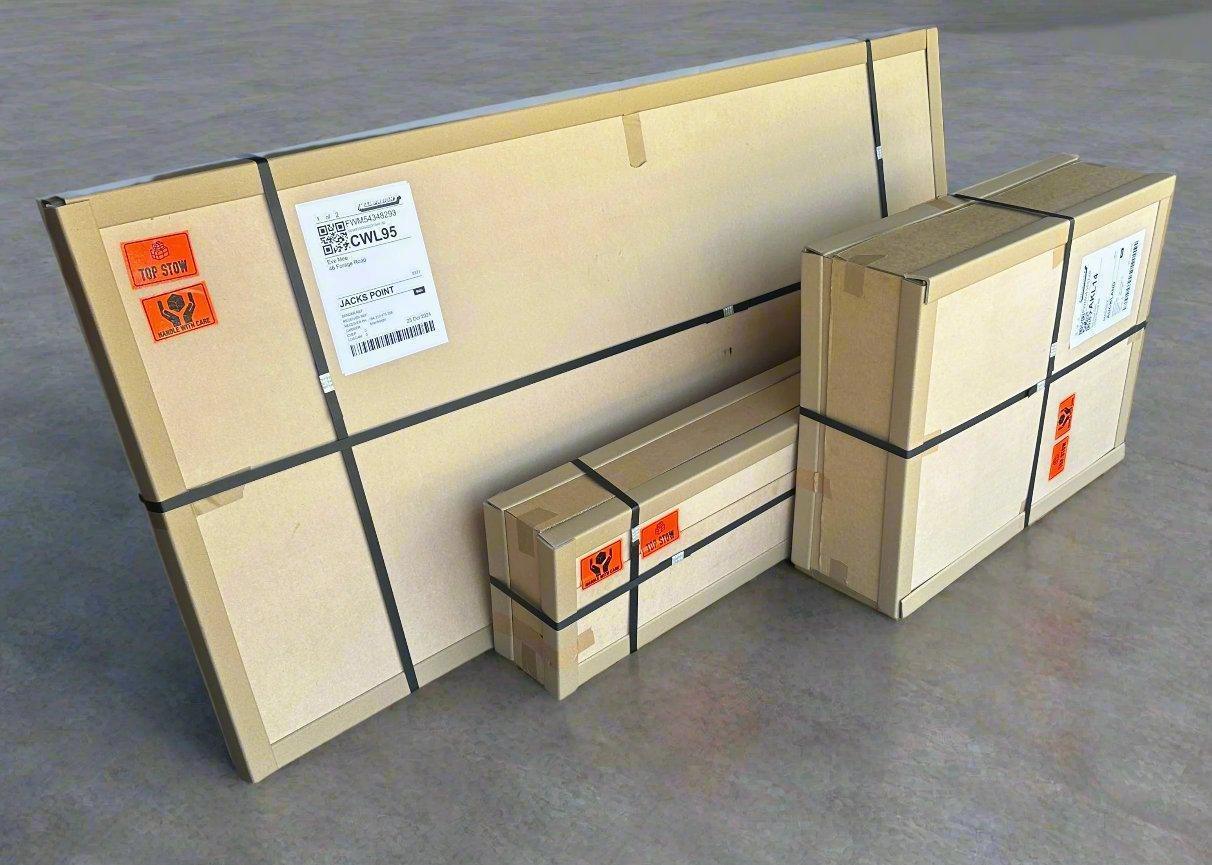
Enquiry form
Or call us 0273502083




